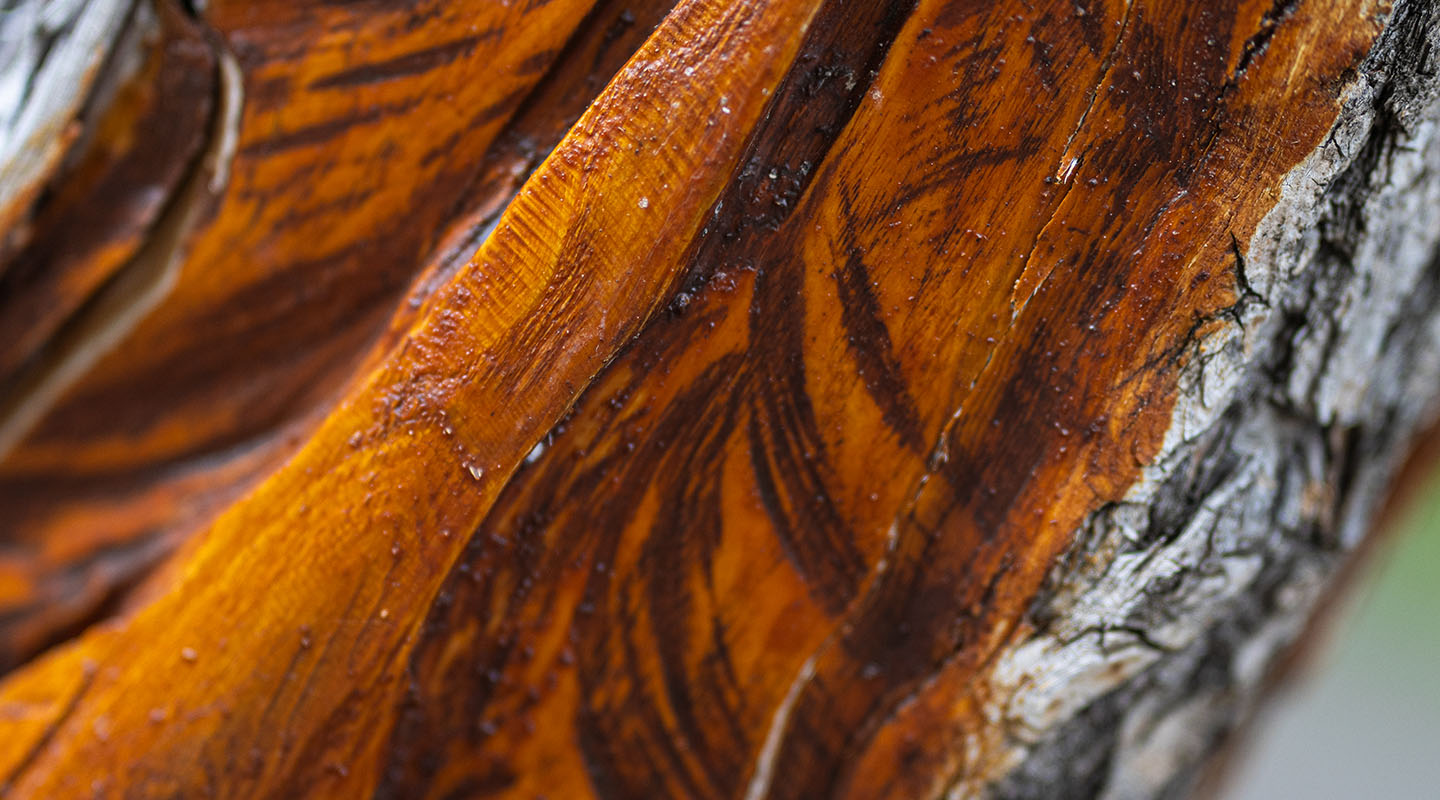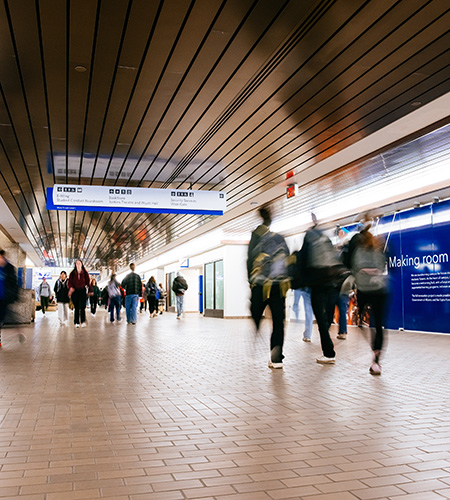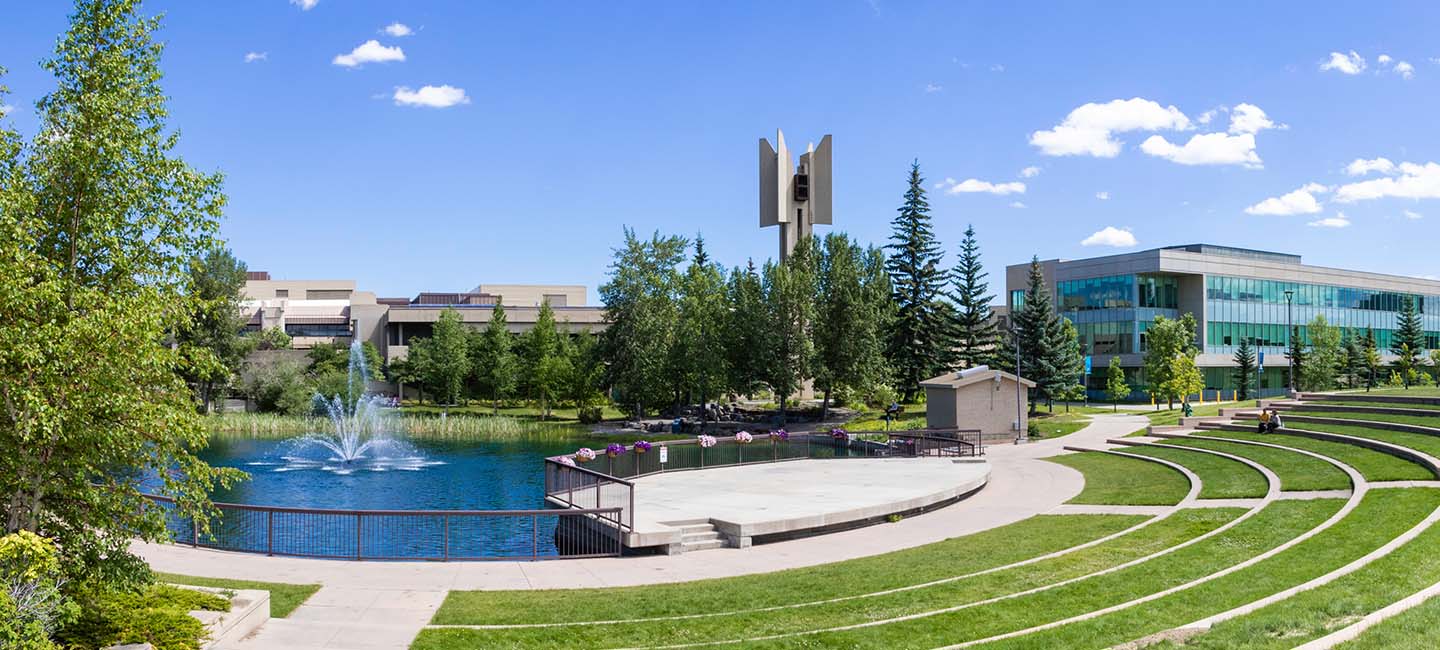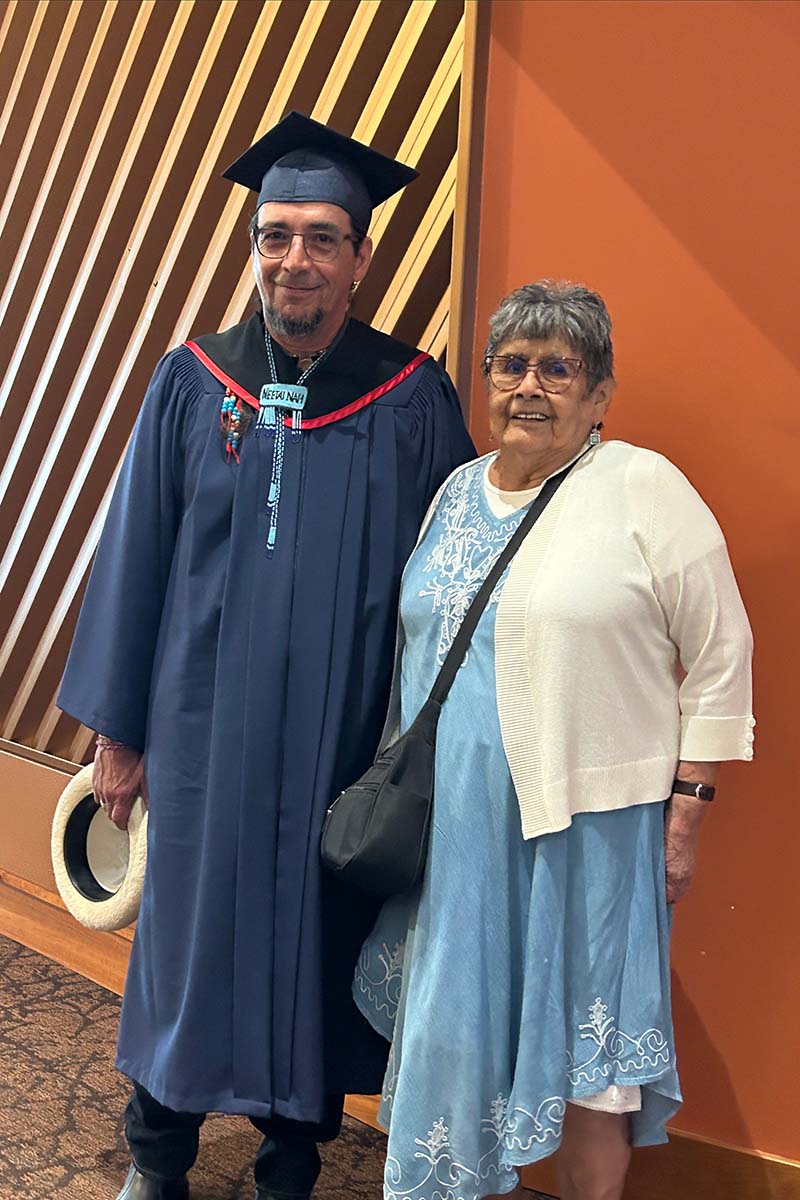
Why choose the Indigenous University Bridging program?
Build academic confidence and transition smoothly with support in a welcoming, Indigenous-centred community.
Mount Royal University's Indigenous University Bridging Program (IUBP) supports Indigenous learners in preparing for university by combining academic upgrading and first year university courses with Indigenous cultural support. Offered through the Iniskim Centre, the program provides tutoring, advising, social events and community connections. It creates a welcoming space to boost grades, gain confidence and experience post-secondary life, ensuring strong support and success at every step toward admission to MRU credit programs.
Indigenous University Bridging Program information sessions
Attend an info session to learn about MRU programs, the Iniskim Centre, how to apply, campus resources, how to apply for funding, and living in residence.
Register nowProgram highlights
- Start strong in a welcoming space that centres Indigenous culture, identity and belonging
- Experience campus life while earning credits toward future university programs
- Join workshops, ceremonies and cultural events that connect you to community and self
- Celebrate your achievements with friends and family at our Indigenous Honouring Ceremony
- Get one-on-one support from Indigenous mentors, tutors, advisors and Elders
Future possibilities
IUBP opens doors to a wide range of academic and career paths:
- Connect with Indigenous mentors who can guide you with transition into university life
- Complete the requirements to gain acceptance into the post-secondary program of your choice
- Participate in work experience opportunities such as our Indigenous Career Mentorship and co-op programs to gain experience and build your network while you study
Oki, I owe the proudest day of my Mother’s life to the support and community I received on day one at the Iniskim Centre. At 82 years old she watched her son graduate from the Indigenous University Bridging Program and start a journey of knowledge.
— Douglas Barclay (Nee-Tai-Nah)
Indigenous University Bridging Program graduate (2025)
Curriculum and courses
What courses will I take in the Indigenous University Bridging Program?
Build confidence with high school and post-secondary courses through an academic plan tailored to your needs. Here are some of the courses we offer.
Explore full curriculum and coursesUpgrading courses
|Credit courses
Upgrading courses

Experiential learning
The Indigenous University Bridging Program (IUBP) emphasizes experiential, relational and holistic learning rooted in Indigenous ways of knowing. Students engage in:
- Individualized tutoring support through the Iniskim Centre
- Cultural and community activities like, movie nights and Indigenous Recreation events
- BMO Peer Mentorship program to establish relationships and hone academic skills through education, culture, community and wellness
- Find support, community, and belonging within the IUBP and the Iniskim Centre
Admission requirements
Requirements can vary, so it’s important to review what’s needed for your area of interest.
What are the requirements for the Indigenous University Bridging Program?
Admission into the program is based on the completion of the IUBP application form and on the number of seats available for new students. Additionally, all students must:
- Be of Indigenous ancestry
- Have successfully completed grade 10 or higher
- Submit all transcripts from upgrading and/or secondary institutions
All criteria must be met for an application to be considered. Please note that enrolment in this program is limited and final admission is based on the criteria as well as available seats. Prospective students are strongly encouraged to attend an IUBP information session to learn more.
If English is not your first language, you’ll need to meet two separate English requirements to be admitted to Mount Royal:
- You’ll need to successfully complete an English course if it’s part of your program’s admission requirements
- Show that you meet Mount Royal’s English Language Proficiency (ELP) requirements
Admission deadlines
Apply for
Fall 2026
Feb. 1 – May 15, 2026
Apply for
Winter 2026
Sept. 15 – Nov. 15, 2025
Costs
We know your investment in post-secondary education is a big deal. Make sure you’re on the right financial track by reviewing the costs and financial support available.
How much does the Indigenous University Bridging Program cost?
The cost of your studies depends on a few things, like the program you choose and whether you’ll live at home or in Residence.
To get a better idea of what you might spend, view our tuition fee schedule to get an idea of the cost for upgrading courses as well as credit courses.What funding is available specifically for Indigenous students?
Need help covering school costs? You’ve got options. If you identify as Indigenous and are unsure of what financial support you might be eligible for, we’ve got your back. Here are a few ways to fund your academic journey:
Sponsorship
Are you getting support from your band, Advancing Futures or another third party? Awesome! Be sure to review the third-party billing sponsorship procedure before the tuition deadline.
Scholarships and bursaries
IUBP bursaries are available to help with tuition and fees, as well as to help supplement the cost of living as a full time student. Applications for this funding will be sent to prospective students from the IUBP directly.
Foundational Learning Assistance Program (FLAP)
IUBP students are eligible for the FLAP provincial bursary. To be eligible, you must be a Canadian citizen with a valid Social Insurance Number, have an Alberta address and be at least 18 when starting school. Applicants must also have an Alberta Student Number (ASN) and have completed the most recent tax return available. While the bursary is intended for those unemployed or working less than 20 hours per week, a Counsel to Leave Employment can be obtained for anyone working more than 20 hours per week and needs to reduce their employment to attend classes. Only non-credit courses are sponsored by this funding. Contact the Program Administrator for consideration.
Have questions?
Christy Lowrance
Program Administrator, Indigenous University Bridging Program
403.440.5040 | iubp@mtroyal.ca
Andrew Narraway
Program Assistant, Indigenous University Bridging Program
403.440.5015 | iubp@mtroyal.ca
Iniskim Centre T110
Our info sessions are a great way to explore MRU programs, learn how to apply and connect with people who are here to help.
Book an info session
Connect with the Admissions and Recruitment Office for more one-on-one support:
Contact us

Why MRU
At MRU, learning is about more than lectures and textbooks. It’s about evolving through experience. With small class sizes, supportive faculty and hands-on opportunities, students are encouraged to think critically, push boundaries and uncover what they’re capable of. MRU helps students build the skills, confidence and curiosity to shape meaningful futures in Calgary and beyond.
Discover why MRULearn about the additional supports and services we have available specifically for:
International students Indigenous studentsFind your path
There isn’t a one-size-fits-all approach to starting university. If you don’t yet meet the admission requirements or the competitive average for your desired program, MRU’s alternative entrance options can help get you where you want to go.
IUPB information sessions
Attend an info session to learn about MRU programs, the Iniskim Centre, how to apply, campus resources, how to apply for funding, and living in residence.
Sign-up

